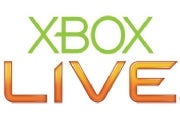 In an otherwise underwhelming keynote speech at this year's CES tradeshow, Microsoft made a play to control the biggest screen in the house.
In an otherwise underwhelming keynote speech at this year's CES tradeshow, Microsoft made a play to control the biggest screen in the house.
The battle for the remote control is a staple of family life. Throw a games console into the mix and older family members can find themselves consigned to the spare room. But because the living room TV is the gateway to the digital home, today's 'gaming device' is tomorrow's gesture- and voice-controlled media centre.
Right now, tech-savvy people such as you and I find our information on the web and, along with a little BBC iPlayer, catch our entertainment from the tellybox. We access the services of Google, via the technology of BT and Virgin.
In the mobile world, Apple has more than its share of technophiles consuming media via iTunes, while Sky is the big beast of pay-for TV. Microsoft has fingers in most of these pies, but is master of only the window by which you access the web from your PC. The boring bit, some might say.
But the mass market beast Microsoft has become no longer targets only techies - as Google Android and Apple iOS eat into the mobile computing space, it can't afford to. In its generally underwhelming keynote speech at CES, Microsoft made little of PCs, a lot of the Xbox, and in particular it promoted Microsoft Kinect for Xbox 360 and Xbox live. And if you think 'games consoles' have no place in the pages of PC Advisor, consider this: in the first 60 days on sale, Microsoft sold more than 8 million Kinect sensors (it hoped to sell 5 million), and each month 30 million people access Xbox Live.
 With a web-connected Xbox, Microsoft users will soon be able to experience thousands of movies and TV shows, as well as music, websites and even live sport (the latter as yet only in the US). They can watch on demand, in the living room, on the biggest screen in the home. And they can chat to and see other Xbox Live users as they do so - all of which makes browsing the web on a PC seem quaint, and consigns the humble TV remote to the dustbin.
With a web-connected Xbox, Microsoft users will soon be able to experience thousands of movies and TV shows, as well as music, websites and even live sport (the latter as yet only in the US). They can watch on demand, in the living room, on the biggest screen in the home. And they can chat to and see other Xbox Live users as they do so - all of which makes browsing the web on a PC seem quaint, and consigns the humble TV remote to the dustbin.
I'm no Microsoft fanboy, and I'm no gamer (I found I could access Love Film from my PlayStation 3 only through researching this piece), but this shift in Microsoft's focus is interesting in the kind of people it can pull in to the digital home field.
I'll illustrate: at a recent fancy dress party two of my friends (BA Baracus and a wizard) who live many miles apart seamlessly carried on the banter they indulge in nightly over Xbox Live. No surprise there, but both have in the past asked me for basic tech support ("do I need security software?") and neither spends time on what they would call a 'PC'. The idea of contacting a mate over VoIP would never occur - but they are doing it every evening (much to their spouses' chagrin).
There are plenty of other options for accessing movies, games, TV and live sport, and myriad ways to communicate. But Microsoft alone has the potential to marry these together and, as we've seen with Apple iTunes, if you control access to content, you squeeze your rivals out of the hardware.
Xbox Live users weren't looking for an entertainment hub, they wanted to chat to their mates whilst gaming. But if Microsoft can convert these and similar people to getting TV and movies through their 'games console', it will add the living room to the office it already dominates.
Legal | Politics | Sports | Teens | Webmasters
Source: http://feeds.pcworld.com/click.phdo?i=0fdde7e39ce30b5963439f1620333795
antique bird lamp antique bridge lamp antique banker lamp antique electric lamp antique motion lamp
Keine Kommentare:
Kommentar veröffentlichen